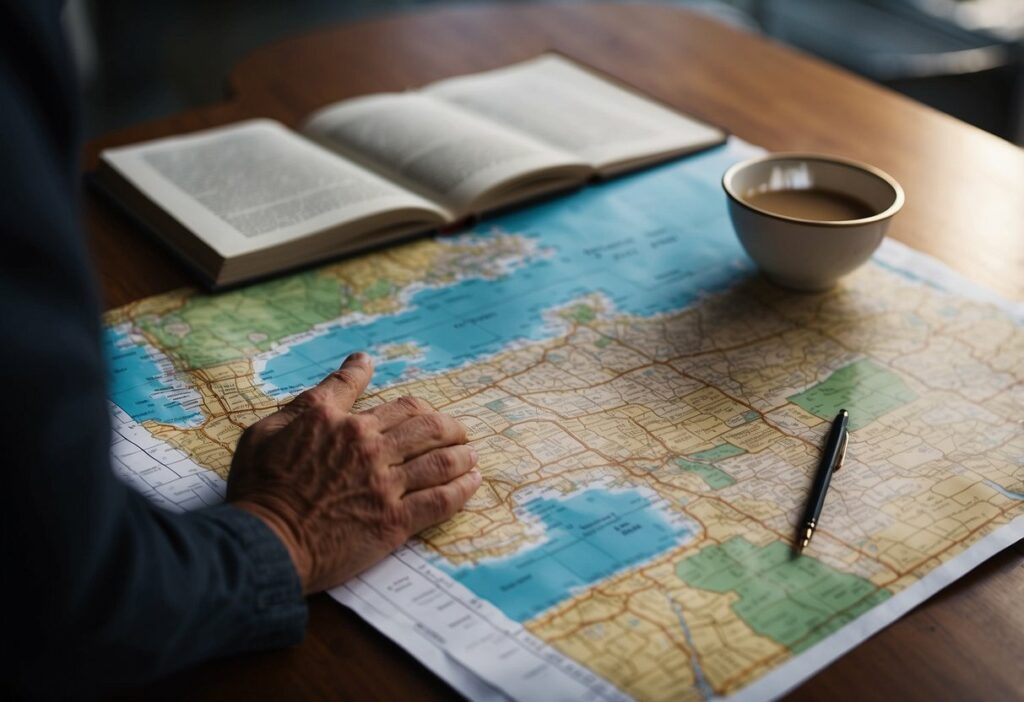What Steps Can You Take to Rediscover Your Identity Post-Breakup? Tips and Tricks for Moving On

Breaking up can leave you feeling lost and unsure about who you are. It’s a big shift that can affect every part of your life. Taking time to focus on what you love and what makes you happy is a key step in rediscovering your identity. When I went through my breakup, I realized that diving into hobbies I had put on hold helped me reconnect with myself.
Another powerful step is spending time with supportive friends and family. They know you well and can remind you of your strengths and unique qualities. For me, talking things out with close friends provided comfort and pushed me to see the silver lining.
Also, don’t be afraid to spend time alone. Solo activities like hiking or journaling can give you space to reflect and grow. Through these quiet moments, I found clarity and rediscovered my personal goals and desires.
Embracing Solitude

Spending time alone can help you learn more about who you are and what you want. It gives you a chance to grow and heal.
Reflection and Acceptance
After a breakup, it’s normal to feel a lot of emotions. Take some time to think about these feelings. Grab a journal and write down your thoughts. It’s a great way to process everything.
Accept that it’s okay to feel sad, angry, or confused. All these emotions are part of healing. Try not to judge yourself too harshly. Instead, be kind to yourself.
Talking to a trusted friend or therapist can also help. Sometimes, saying things out loud can make them feel more manageable. Remember, it’s a process, and it’s okay to take small steps.
Creating a Space for Growth
Find a place where you can be alone and relax. This could be a spot in your home, like a cozy corner with a chair and some good books, or even a nearby park where you feel at peace.
Start doing activities that make you happy and bring you joy. This could be anything from painting to hiking. Explore new hobbies that you didn’t have time for before.
Set small goals for yourself. Achieving these can build your confidence. Celebrate your progress, no matter how small it might seem.
Having a routine can be helpful too. It gives structure to your day and can make you feel more in control. Include time for yourself in this routine, whether it’s for meditating, exercising, or just relaxing.
Self-Exploration

Finding yourself again after a breakup can be tough, but there are specific steps that can help. Getting back into hobbies and interests will guide you on this journey.
Pursuing Personal Interests
It’s a good time to immerse yourself in new hobbies. Trying activities like painting, hiking, cooking, or joining a book club can be refreshing. By keeping busy and learning new skills, you can figure out what you truly enjoy.
I suggest making a list of things you’ve always wanted to try. Prioritize these activities and make time for them regularly. This will help shift focus from past to present and create a sense of accomplishment.
Remember, these pursuits aren’t about perfecting a skill but about having fun and discovering what brings you joy. It’s about being kind to yourself and enjoying the process.
Revisiting Past Passions
Sometimes, looking back at what you once loved can reignite your sense of self. Think about activities you enjoyed before the relationship. Did you used to play an instrument, write stories, or engage in sports?
Take small steps to reintroduce these passions. If you loved biking, try going for short rides again. If you loved writing, start a journal or blog. These activities can feel like reconnecting with an old friend.
Join groups or communities with similar interests. This can bring a sense of belonging and help you meet new people who share your passions. It’s a great way to rebuild your identity and connect with others.
Building Resilience

After a breakup, building resilience is crucial. It involves setting boundaries to protect your well-being and developing coping strategies to deal with tough emotions.
Setting Boundaries
After a breakup, it’s important to set boundaries to protect your own peace. I made sure to limit my interaction with my ex, which gave me space to heal. Blocking or muting them on social media helped me avoid unnecessary pain.
Boundaries also mean saying “no” when needed. I stopped attending events where I knew they’d be. It might seem hard, but it’s about taking care of myself first. I also found it was helpful to spend time with people who uplift me. Surrounding myself with friends who respected my boundaries was a game-changer.
Developing Coping Strategies
Finding ways to cope with the emotional rollercoaster post-breakup is key. I started by journaling my feelings, which helped me process my emotions honestly. Writing things down gave me a clear view of my thoughts and feelings.
I also picked up new hobbies. Trying something different, like painting or hiking, kept me busy and gave me a sense of accomplishment. Physical activity helped too. Even a short walk made a big difference.
Another great strategy was mindfulness. I practiced simple breathing exercises and meditated a bit each day. It kept me grounded and calmer. Talking to a therapist also provided a safe space to work through my feelings.
Doing these things made my days more manageable and slowly, my sense of self started to return.
Expanding Social Horizons

After a breakup, it’s important to branch out and make new connections. This can help in rediscovering who you are outside of a relationship.
Seeking Support Systems
Leaning on friends and family can make a big difference. They can provide emotional support and a sense of belonging.
Joining support groups is another good option. Whether it’s in-person or online, these groups can offer a safe space to share and connect with others going through similar experiences.
Meeting new people through social events can also be helpful. Things like community gatherings, hobby groups, or even work events are great for expanding your circle.
Trying New Activities
Trying out new hobbies or interests is a great way to reinvent yourself. This could be anything from taking a cooking class to joining a book club.
Participating in local community events can also be rewarding. Volunteering or attending local festivals can introduce you to new experiences and people.
Taking up physical activities can boost your mood and help you stay active. Whether it’s joining a gym, signing up for a dance class, or going hiking, staying active is key.
Trying new things can open up a world of possibilities and help you find new passions.
Planning for the Future

After a breakup, it’s important to think about your future. This means setting personal goals and imagining what success looks like for you.
Setting Personal Goals
I think it’s helpful to start small. List a few goals you want to achieve in the next month. Maybe it’s learning a new hobby or reading a book. These goals don’t have to be huge; they just need to be things that make you feel good.
Daily goals can also be useful. Simple things like going for a walk, cooking a healthy meal, or calling a friend can make you feel accomplished. Write these goals in a journal or on a whiteboard where you can see them every day.
Don’t forget to reward yourself. If you reach a goal, treat yourself to something nice. It could be as small as your favorite snack or a movie night. Celebrating these small wins can give you a boost of confidence and motivation.
Visualizing Success
Imagine where you want to be in six months or a year. Think about what makes you happy and what you need to do to get there. Maybe you see yourself in a new job, or maybe you want to travel. Whatever it is, visualize it clearly.
Creating a vision board can be a fun way to do this. Find pictures and words that represent your goals and dreams and put them on a board. Hang it somewhere you will see every day. This can keep you focused and positive.
Meditation and mindfulness are also great tools. Spend a few minutes each day closing your eyes and picturing your future. Feel the emotions you would feel if you achieved your goals. This can make your dreams feel more real and reachable.
Having a detailed plan can make a big difference. Write down steps you need to take to reach your big dreams. Breaking them into smaller tasks can make them feel less overwhelming and more achievable.
